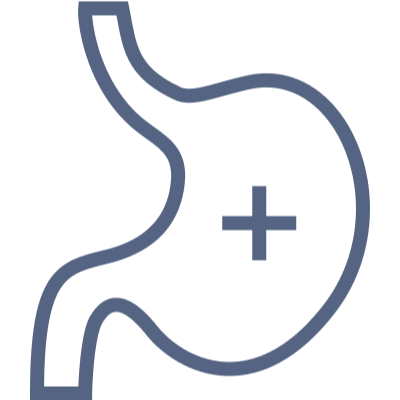Collection Method
CI05.22.01
Kit Requirements
EDTA
Turn Around Time
10-15 Business Days Turnaround times are estimates
Description
The test detects the genes (human leukocyte antigens or HLA) that control the immune system’s reaction to gluten. There are several types of HLA genes within each person and it is HLA-DQ that is most useful in the assessment of the probability that a person may be gluten sensitive. The reason gene testing assesses probability rather than disease itself is because some people have the genes for gluten sensitivity but have no detectable evidence of the immune reaction to gluten or have no symptoms. In such people, gluten sensitivity is still possible but the probability is lower than in a person who may be having symptoms attributable to gluten or that has antibodies detected.
HLA testing is most useful when there is diagnostic confusion about whether or not a person is gluten sensitive. Such confusion often stems from one of the following: atypical intestinal biopsy results, the presence of associated diseases (such as microscopic colitis) that may mask the expected improvement of symptoms when gluten is withdrawn from the diet, negative tests for gluten antibodies in the midst of suggestive symptoms or signs of gluten sensitivity or coeliac disease, or when there are no symptoms at all and the person or the doctor can hardly believe that gluten sensitivity is really present. Other situations HLA testing is useful is when a person is already on a gluten-free diet and for testing family members (particularly children) for the probability that they have or will develop gluten sensitivity.
The test utilises stool rather than blood as the testing substrate for food sensitivity; the rationale is that immunologic reactions to proteins in the diet that cause these reactions are centred within the intestinal tract and not in the blood.
Sciurti M, Fornaroli F, Gaiani F, et al. Genetic susceptibilty and celiac disease: what role do HLA haplotypes play?. Acta Biomed. 2018;89(9-S):17‐21. Published 2018 Dec 17. doi:10.23750/abm.v89i9-S.7953
Analytes
- HLA-DQB1 Molecular Analysis
Test Method
Common Conditions
 Gastrointestinal and Digestive Health
Gastrointestinal and Digestive Health- Abdominal pain
- Bloating, wind
- Constipation
 Reproductive Health
Reproductive Health- Anemia
 Mental and Emotional Health
Mental and Emotional Health- Anxiety
- Brain fog
- Depression
 Other Health Conditions
Other Health Conditions- Diarrhoea
- Fatigue
- Headaches
- Indigestion, heartburn
- Joint pain
 Skin and Dermatological Health
Skin and Dermatological Health- Rashes
Notice To Patients
NutriPATH practices in the usual practitioner-referral system for pathology laboratories. Patients are highly recommended to seek the supervision and guidance of a qualified healthcare practitioner for the interpretation of any lab results and associated information. NutriPATH can offer assistance in locating a suitable practitioner.
How it works
Step 1
Order test
Your referring practitioner will place this order via their online portal.

Step 2
Collect Samples
A test kit will be dispatched to you and you can conveniently collect your sample in the comfort of your home.

Step 3
Return Samples
Return samples for analysis via the provided courier packaging.

Patient resources
Our highly skilled and qualified team have created a service where patients can easily gain access to a wide range of pathology testing options.
Practitioner resources
As a leader in the industry, practitioners are able to trust in our ability to provide them with the technology they need to adequately test their clients and patients.









